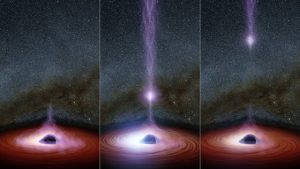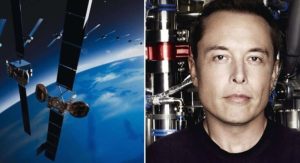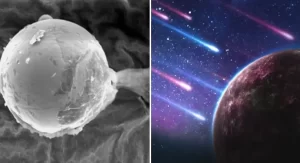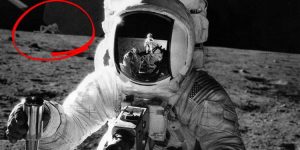Two ancient books talk about aliens, UFOs and robots, written in the 2nd and 17th centuries

There are several controversial ancient texts that hint at interaction between humans and beings that came to Earth from elsewhere. Although there is no definitive evidence to support this theory, many credible personalities
they have given him credit. In the middle of this are two old books that talk about aliens, UFOs and life on other planets. This evidence clearly establishes that humans believed in the existence of extraterrestrials for thousands of years.
Ancient novel about aliens, UFOs and robots written in the 2nd century
Lucian of Samosata, a Syrian satirist and rhetorician, is credited with introducing the world of science fiction nearly 2,000 years before Jules Verne and HG Wells. As one of the first novelists of Western civilization, he envisioned a future in which humanity would encounter extraterrestrial life, engage in interplanetary warfare, and create artificial life.
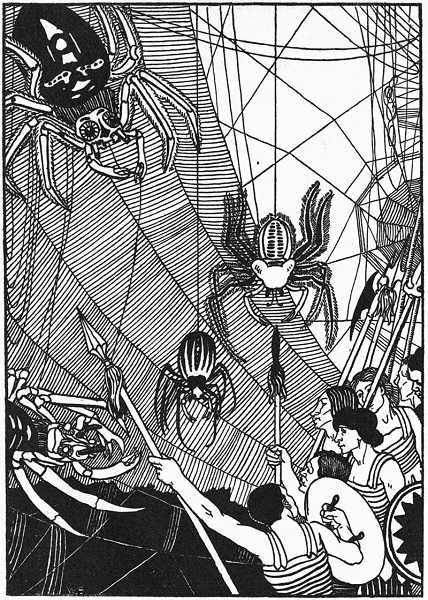
Lucian covered topics like aliens, spaceships, and robots in the Greek language long before the works of Verne and Wells. Many scholars consider him the father of science fiction, as his stories laid the foundation for the genre as we know it today, even though they were written two millennia ago.
In his novel “A True Story”, Lucian narrates the adventures of Lucian and his crew, all of them cosmonauts, flying ships, television projections, talking machines, artificial intelligence, alien encounters, space battles, UFOs, humanoids, as well as cities erected within a living organism.
Lucian’s work, written centuries ago, foreshadows many contemporary sci-fi motifs. Lucian and his traveling companions embark on their journey beyond the Pillars of Heracles, but his plans are interrupted by a fierce storm that throws them off course. Eventually, they come to an island with a remarkable wine river that is teeming with fish and bears. Despite the island’s wonders, they don’t stay long and continue on their way, only to be swept up in a powerful whirlwind that carries them all the way to the moon.

They arrive in the midst of a conflict between the rulers of the moon and the sun, who are fighting for control of the “Morning Star”. The armies are composed of hybrid creatures, part mechanical and part biological, with strange shapes. The Sun army prevails, leading to a peace treaty. Lucian provides insight into the disparities between life on Earth and the other planets.
Upon their return to Earth, Lucian and his travelers are swallowed by a colossal whale that stretches for 200 miles. Inside, they discover a diverse population of fish people.
After engaging in a war with enigmatic creatures, they finally triumph over the whale after lighting a fire inside its body. Finally, they manage to open their jaws and boldly escape. As they continue their journey, they come across a colossal ocean chasm, but manage to navigate its edge, leading to the discovery of a distant continent which they decide to explore.
Lucian abruptly concludes his writing by stating that his next adventures will be chronicled in subsequent sequels, all of which remain unpublished. Additionally, Lucian’s work encompasses tales of incredible shipwrecks and voyages to extraordinary lands, like an island of dreams, and beautifully traversing forests and interstellar landscapes.
Being the first writer to distinguish between fact and fiction, Lucian made a significant contribution to literature, though not widely recognized in his time. Additionally, “A True Story” is an early example of the idea of traveling across the Atlantic Ocean and exploring unknown lands, predating Columbus’s voyage by approximately 1,400 years.
A rare 17th century book on extraterrestrial life discovered
Due to the hard work of book appraiser Jim Spencer, a book on what life might be like on other planets was discovered, entitled “The Heavenly World Discovered: Or Conjectures Concerning the Inhabitants, Plants, and Productions of the Worlds in the World.” . Planets” by Christiaan Huygens. Spencer found the book at a free antique appraisal event in Gloucestershire, UK. Published in 1698, the book offers a unique insight into how people at the time perceived the possibility of extraterrestrial life.
Christiaan Huygens, a prominent Dutch scientist who excelled in the fields of astronomy, mathematics, physics, and invention, is recognized as one of the greatest scientists of all time. In addition to his pioneering work on the grandfather clock, the wave theory of light, and the discovery of the true shape of Saturn’s rings, Huygens has been revealed to believe in the existence of extraterrestrial life, as evidenced by a rare book discovered recently. .
The book, which includes five fold-out plates, presents Huygens’ argument that God is unlikely to have created other planets solely to be observed from Earth, suggesting that there must be a greater purpose. Spencer commented on the discovery in a statement:
“It is fascinating to think who turned these pages in 1698, what it must have felt like to read these descriptions of life on Jupiter or Saturn before looking up at the night sky. The book tries to describe what the alien beings would look like, how they spend their time, even what their music sounds like. It seems almost comical, but it is based on scientific reasoning, and who knows how our own thoughts on these matters 324 years ago will appear to people.”
Such weird and wonderful musings include Huygens concluding that aliens must have hands and feet, writing in the book:
“Aliens must have hands and feet like humans because of their ‘convenience’,” writing: “What could we invent or imagine that could be so exactly adapted to all designed uses as Hands are? Shall we give them an elephant proboscis?
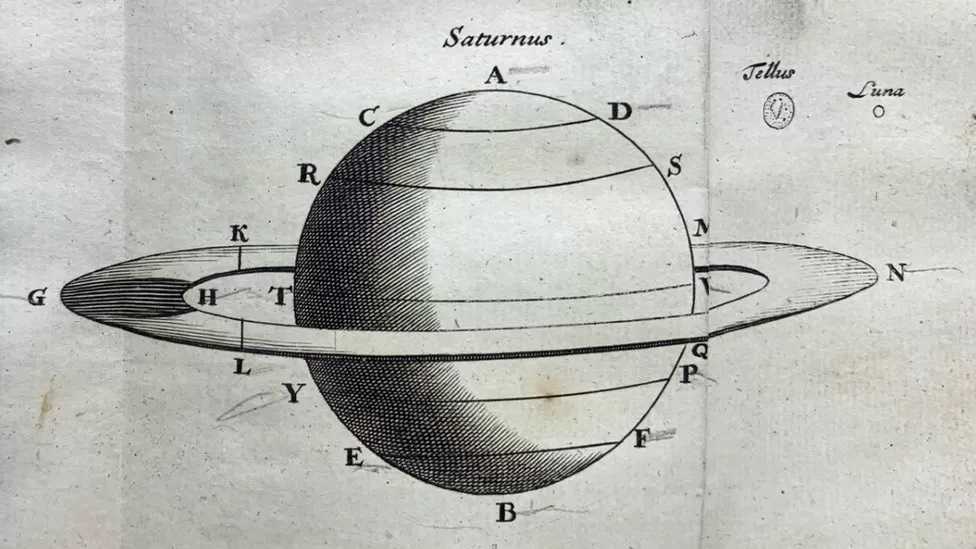
And that “‘heavenly beings’ must have feet ‘[unless] they have discovered the art of flight on one of those worlds.'” Not to mention that Huygens believed: “Aliens enjoyed astronomy and observation, sailed in boats and listened to music. ” but we also suffer misfortune, wars, afflictions and poverty “because that is what leads us to invention and progress. Aliens! Who sail ships and listen to melodies! They are like us.
Huygens shared the belief that aliens, like humans, must experience difficulties in order to drive innovation and advancement. “If Men were to live all their Life in a continuous undisturbed Peace, without fear of Poverty, without danger of War, I do not doubt that they would live a little better than the Brutes, without all knowledge or enjoyment of those Advantages that you make our Life passes with pleasure and profit.”
Although some of Huygens’s conclusions may seem absurd to modern readers, Spencer finds the book captivating because of the many unanswered questions about the cosmos that still exist today. He points out that the subject seems futuristic or science fiction, but the writer speaks to us from the past.
Despite the increased understanding of space and our own planet today, Huygens’ book still draws our attention to the mystery of the universe. Spencer sees the book as a source of amusement and wonder, as he reminds us how much we still don’t know about the cosmos. Ultimately, he sees it as a remarkable discovery that is truly out of this world.

